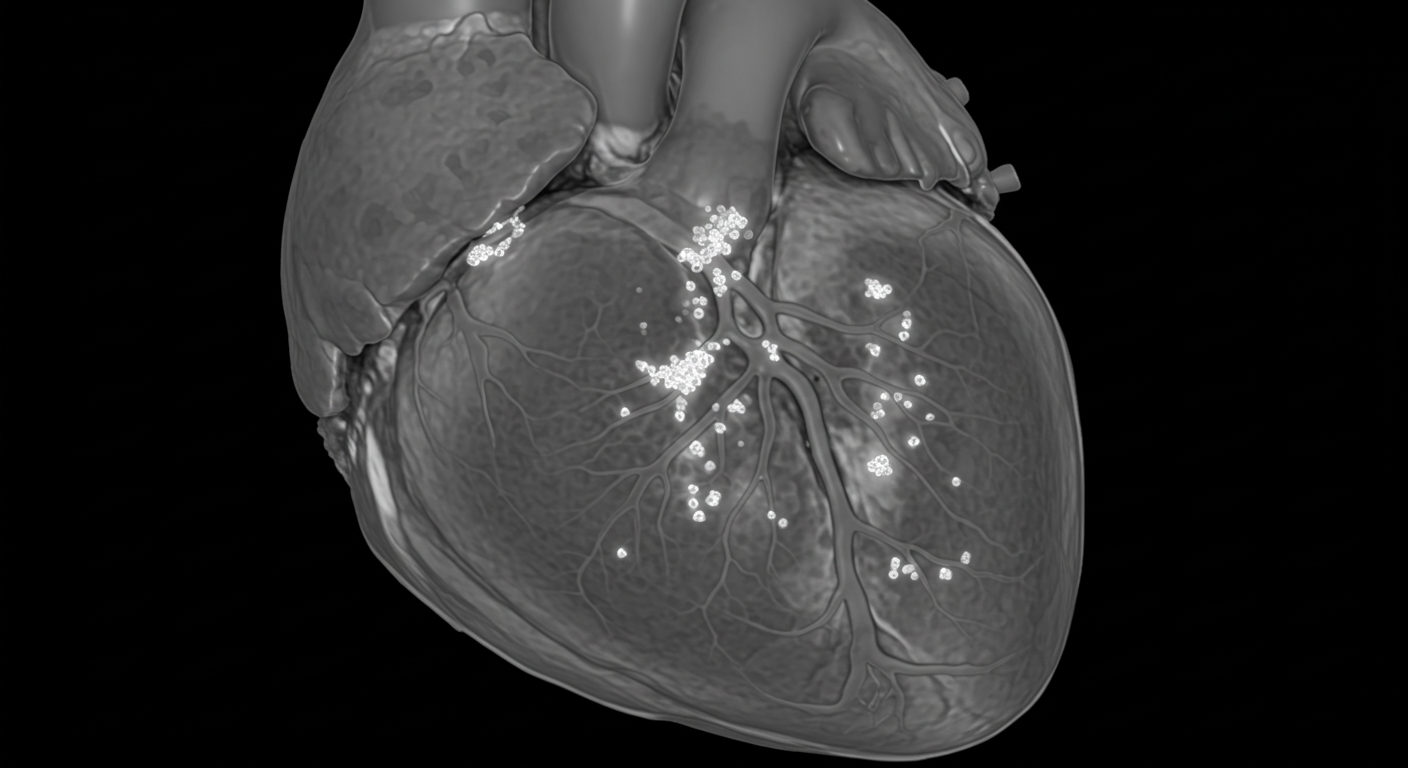Dr. Kumar’s Take:
Vitamin K, especially in its K2 form, may help slow the hardening of arteries caused by calcium buildup—a process known as vascular calcification. This is especially important for people with chronic kidney disease, diabetes, or heart risk. A recent analysis of 14 randomized trials suggests that taking vitamin K can reduce calcium buildup in the arteries and improve blood markers that signal poor vitamin K status.
Key Takeaways:
✔ Vitamin K supplements slowed the progression of coronary artery calcification (CAC).
✔ Vitamin K improved levels of dephospho-uncarboxylated matrix Gla protein (dp-ucMGP), a marker linked to arterial health.
✔ No significant increase in side effects was seen in the vitamin K groups.
Actionable tip:
If you’re at risk for heart disease or kidney issues, consider talking to your doctor about adding a vitamin K2 supplement—especially if your diet is low in fermented foods.
Brief Summary:
This study reviewed 14 randomized controlled trials involving over 1,500 adults to see if vitamin K could slow vascular calcification. The analysis found that vitamin K supplements—particularly K2—slowed the buildup of calcium in the arteries and improved levels of MGP, a protein that helps prevent calcification. Importantly, the supplements were safe and well-tolerated.
Study Design:
Researchers searched four major databases and included 14 randomized controlled trials (RCTs) with a total of 1,533 participants. The trials tested vitamin K (mostly K2/MK-7) against a placebo or no treatment. The participants included people with diabetes, chronic kidney disease, postmenopausal women, kidney transplant recipients, and healthy adults. Outcomes were measured using CT scans or PET imaging to assess artery calcification and blood tests for dephospho-uncarboxylated matrix Gla protein (dp-ucMGP).
Results:
Vitamin K supplementation led to a statistically significant reduction in coronary artery calcification (CAC)
Levels of dp-ucMGP, a blood marker of vitamin K deficiency, dropped significantly with supplementation
No major side effects were reported across trials
How Vitamin K Helps Your Arteries
Vitamin K is needed to activate proteins that prevent calcium from building up in arteries. Without enough vitamin K, these proteins stay inactive, and calcium can get deposited in blood vessels, increasing the risk of heart disease. One of the most important of these proteins is matrix Gla protein (MGP), which needs vitamin K to work properly.
When vitamin K is low, a form called dp-ucMGP builds up in the blood. High levels of this marker suggest your vitamin K-dependent systems aren’t working well—so lowering it with supplements may help protect arteries over time.
Related Studies and Research
Vitamin K2 and Cardiovascular Health: A Review – Reviews the role of vitamin K2 in reducing arterial stiffness and improving cardiovascular outcomes.
Vitamin K2, Cardiovascular, and Bone Health – Explores how vitamin K2 influences both cardiovascular and skeletal systems.
Coronary Artery Calcium and Statin Allocation – Discusses how CAC scoring informs statin use and identifies early vascular calcification.
LDL Cholesterol and Heart Disease: A Review – Evaluates the relationship between LDL levels and cardiovascular risk, with relevance to calcification progression.
Frequently Asked Questions
What’s the difference between vitamin K1 and K2?
Vitamin K1 is mostly found in green leafy vegetables. K2 is found in fermented foods and certain animal products. K2 (especially MK-7) stays in the body longer and is better for supporting heart and bone health.
Can I get enough vitamin K from food?
If you eat plenty of leafy greens (for K1) and fermented foods like natto or certain cheeses (for K2), you might be fine. But many people don’t get enough K2 from diet alone.
Is vitamin K safe to take as a supplement?
Yes, vitamin K2 is generally very safe—even at higher doses used in clinical studies. However, if you’re taking blood thinners like warfarin, talk to your doctor first.
How long does it take to see results?
Most studies lasted 6–12 months. Improvements in markers like dp-ucMGP were seen within months, but changes in artery calcification took longer.
Conclusion
Vitamin K, particularly K2, shows promise in slowing the buildup of calcium in the arteries. While it’s not a magic bullet, it may be a valuable, low-risk tool in your heart health toolbox—especially if you’re older, have kidney disease, or are at risk for heart disease. Speak to your healthcare provider about whether a vitamin K supplement might be right for you.


